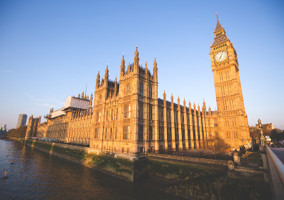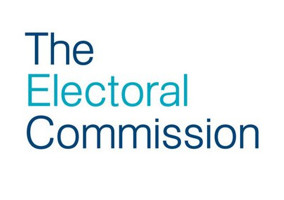The Electoral Commission’s guidance has significantly improved, but the underlying legislation continues to have a “chilling effect” on charity campaigning, leaders told parliament yesterday.
Representatives from Friends of the Earth, the Sheila McKechnie Foundation and Bond gave evidence to the Public Administration and Constitutional Affairs Committee’s inquiry into the Electoral Commission yesterday.
They all agreed that the Electoral Commission’s guidance has improved considerably since the Lobbying Act was introduced. However, charities told MPs that it was the law itself which discouraged charities from legitimate activity because compliance is burdensome and many are worried about breaking the rules by mistake.
Dave Timms, head of political affairs at Friends of the Earth, said: “The clearer the rules get and the clearer the guidance gets, the more we can see that the problems that we’re faced with are not of the Electoral Commission’s creation, they are down to a piece of legislation which is fundamentally flawed and well overdue to be seriously addressed.”
Friends of the Earth, NCVO, ACEVO and Bond have all worked closely with the Electoral Commission to improve its guidance for non-party campaigners.
Rowan Popplewell, policy manager - civic space, at Bond said the guidance has now “improved as much as it possibly can as a result of that”, but that: “There are still outstanding issues and I think the revised guidance has exposed those.”
Electoral Commission’s lack of certainty
Charities said one of the problems is that the Electoral Commission is unable to give campaigners the level of certainty that they need.
Popplewell said that Bond’s members find it “frustrating” that “the Electoral Commission can’t tell you with certainty whether an activity is or is not regulated”.
She said charities are “scared about getting it wrong”, and that: “If they don’t get the certainty that they need, they step a long way back from any activity that could even potentially be regulated and that does have a chilling effect.”
Burdensome
Popplewell explained the Lobbying Act’s purpose test, where campaigners must consider if their activity is likely to influence people to vote in a particular way is confusing.
This is because it is about “how your activity could be perceived by someone else” and means that it becomes “too risky for a lot of campaigners”.
She also said that the time and effort that charities need to comply “is incredibly burdensome”, and that even if you don’t spend enough to need to register, organisations still need to track their spending carefully during regulated periods.
Chloe Hardy, director of policy and communications at the Sheila McKechnie Foundation, added: “The act as it is currently drafted puts a massive strain on civil society organisations' capacity, in terms of time and money and crucially expertise.”
Risk to reputations
One of the things that charities are fearful is the damage to their reputations if they make a mistake.
Friends of the Earth has been fined in the past for what Timms described as “administrative errors”.
These administrative errors “leaves you being able to be described as having broken election law” and therefore open to criticism from opponents.
He said this was particularly worrying in a context where “campaigning by civil society organisations, and especially charities, has been demonised in the press, and charities have been attacked for it”.
Timms added that under-resourced regulators are more likely to “go for misdemeanours which are accidental”.
He suggested that the Electoral Commission should “really focus its policing efforts on those who are entirely ignoring the legislation” instead of “having small organisations in fear of administrative errors because of how that will be represented and the damage that would do to their reputation”.
Hardy agreed: “There is a deep fear of getting it wrong in an incredibly minor way, and taking massive reputational damage.”
Blunt solution to a vague problem
Sheila McKechnie Foundation carries out regular research about charity campaigning and the Lobbying Act is often cited as a problem.
Hardy tole MPs: “The original legislation and further changes the government is now seeking, feel like a very blunt solution to a very vague problem.”
Overall, she said: “The burden of regulation, the fear of getting it wrong reduced the capacity of those organisations to both represent the issues that affect the people they work for and to support people to engage in political debate themselves.
“Secondly, it made it harder for charities and voluntary organisations to pursue their missions or purpose, which is what they’re required to do, especially those working in politically sensitive issues.”
Hardy also highlighted that charity campaigning is already regulated by the Charity Commission, and that further “changes to the approach of the Electoral Commission and even further tweaks to guidance” will not solve the main issues.
“What we actually have is quite a toxic mix of bad legislation, partial double regulation and divisive rhetoric,” she said.
Related articles











